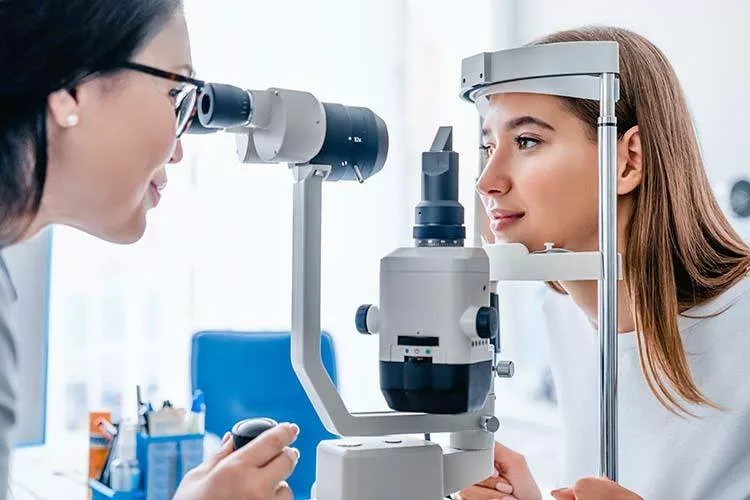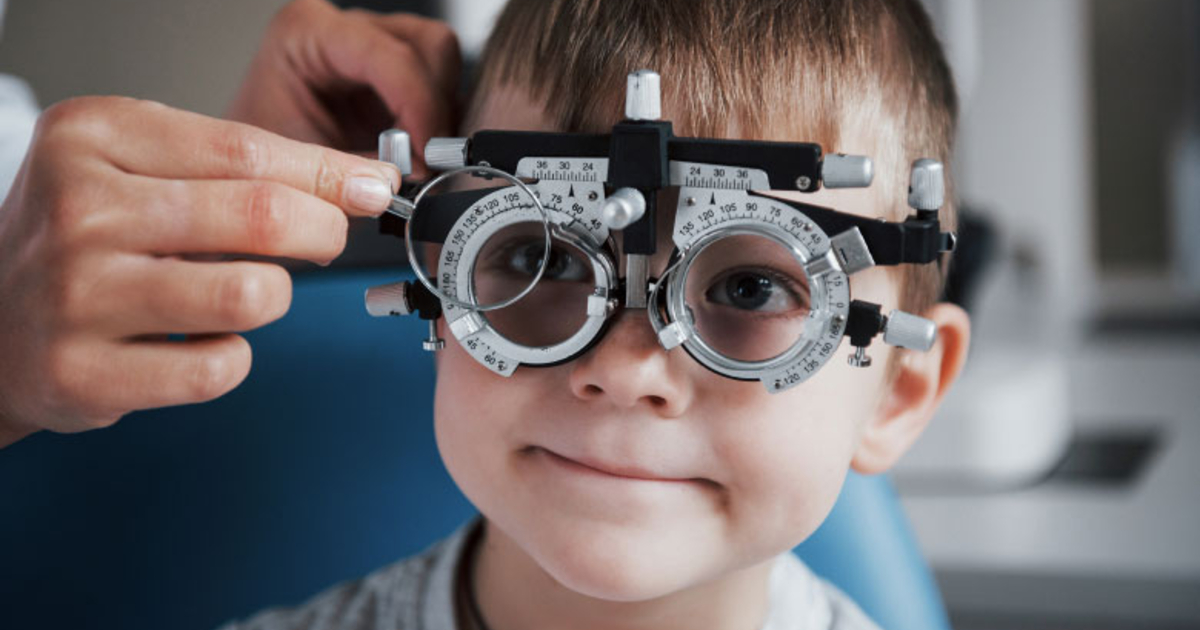Best Eye Doctor and Optometrist Solutions in Montgomery
Best Eye Doctor and Optometrist Solutions in Montgomery
Blog Article
The Importance of Regular Eye Exams: Insights From a Knowledgeable Optometrist
Normal eye exams act as a critical element of medical care that prolongs past plain vision modification. A seasoned optometrist can offer understandings right into just how these examinations not just spot usual eye problems but also reveal underlying health and wellness problems that might or else go unnoticed. The silent progression of conditions such as glaucoma and macular degeneration emphasizes the requirement of very early detection. Understanding the regularity and importance of these analyses can eventually influence one's long-term wellness trajectory, elevating the inquiry of exactly how commonly people must prioritize their eye health and wellness in the context of general health.
Benefits of Normal Eye Tests
Although several individuals might overlook the importance of routine eye examinations, these assessments play an essential function in maintaining general wellness and health. Normal eye assessments serve not just to examine vision but likewise to find very early indicators of systemic health and wellness problems, including diabetes and high blood pressure. By identifying these conditions at their beginning, people can receive timely interventions, considerably boosting long-term end results.
In addition, eye exams can help in keeping track of existing wellness problems, guaranteeing that any kind of modifications in vision or eye wellness are immediately dealt with (optometrist). The evaluations enable individualized referrals regarding eyeglasses, lifestyle modifications, and safety steps against potential eye strain or damages
Beyond physical health, the benefits of normal eye exams prolong to improving top quality of life. Inevitably, prioritizing eye exams fosters a proactive strategy to health management, equipping individuals to take charge of their wellness.
Common Eye Issues Detected
Regular eye examinations contribute in spotting a range of usual eye conditions that can dramatically impact vision and total health and wellness. Among the most common conditions determined during these evaluations are refractive mistakes, including myopia (nearsightedness), hyperopia (farsightedness), and astigmatism. These problems typically materialize as obscured vision and can be quickly corrected with prescription glasses or get in touch with lenses.
Additionally, cataracts, which cause clouding of the lens, are regularly identified in older adults. This condition can bring about diminished vision and needs medical intervention for resolution. Another common concern is glaucoma, a team of eye conditions that harm the optic nerve, usually connected to increased intraocular stress. Early discovery is essential as it can stop permanent vision loss.
Age-related macular deterioration (AMD) is an additional substantial problem that impacts main vision, especially in individuals over 50. Finally, diabetic person retinopathy, a difficulty of diabetes mellitus, can lead to extreme vision disability otherwise monitored routinely. Through extensive eye tests, these problems can be determined early, permitting timely management and treatment to maintain vision and improve top quality of life.
Value of Very Early Detection
Early detection of eye problems plays an important function in protecting vision and stopping considerable wellness complications. Many eye illness, such as glaucoma, diabetic person retinopathy, and age-related macular degeneration, can advance silently without visible symptoms in their beginning. By the time signs materialize, permanent damage may have taken place, leading to permanent vision loss.
Regular eye tests help with early medical diagnosis, permitting prompt treatment and therapy. As an example, treating elevated intraocular stress can avoid the beginning of glaucoma, while taking care of blood sugar level levels can considerably minimize the threat of diabetic person retinopathy. Additionally, problems like cataracts can be successfully handled with surgical treatment when identified early.

How Typically Should You Check Out?
Figuring out the frequency of eye examinations is essential for preserving ideal eye health and vision. The basic referral for grownups is to have a thorough eye exam each to two years, relying on private risk factors and age. For individuals aged 18 to 60, a test every 2 years is generally sufficient if no vision problems are present. However, those over 60 ought to consider yearly exams, as the danger of age-related problems increases considerably.
Individuals with specific danger factors, such as a family background of eye illness, diabetes, or existing vision issues, may call for more frequent analyses. Youngsters need to have their initial eye examination at 6 months of age, complied with by extra examinations at age 3 and prior to getting in institution. Normal examinations during childhood are essential as vision can alter quickly throughout developmental years.
Ultimately, the regularity of gos to ought to be tailored per individual's circumstances, consisting of lifestyle, occupational threats, and any pre-existing eye problems. Consulting with an eye treatment specialist can supply individualized referrals, making sure that your eye wellness is frequently monitored and maintained.
Tips for Your Eye Test
Preparing for your eye exam can boost the effectiveness of the browse through and make sure an extensive evaluation of your eye wellness. To maximize your time with the eye physician, it is vital to gather pertinent info before your visit. Begin by assembling a list of any drugs you are presently taking, consisting of over-the-counter drugs and supplements, as these can affect eye wellness.
Additionally, record any type of signs and symptoms you have experienced, such as blurred vision, pain, or migraines. This information will aid your eye medical professional in diagnosing prospective problems.
It is also useful to have a household background of eye problems handy, as genetic elements can add to your eye health. Finally, take into consideration arranging your exam for a time when you are less hurried, enabling you to ask inquiries and see this here discuss your issues thoroughly. By preparing properly, you guarantee that your eye exam is effective and that your optometrist has all the required details to supply the best treatment possible.

Conclusion
Routine eye exams play a crucial function in maintaining both vision and total health and wellness. Inevitably, prioritizing extensive eye evaluations contributes dramatically to the conservation of vision and the improvement of top quality of life, underlining the requirement of regular eye care in preventative healthcare methods.
Routine eye exams are important in discovering a selection of common eye problems that can significantly impact vision and general health and wellness.Identifying the regularity of eye examinations is important for keeping optimum eye health and vision.Preparing for your eye test can boost the effectiveness of the go to and guarantee a comprehensive analysis of your eye health and wellness (optometrist). By preparing adequately, you ensure that your eye exam is effective and that your eye physician has all the needed information to offer content the best care possible
Ultimately, prioritizing comprehensive eye analyses adds substantially to the conservation of vision and the improvement of top quality of life, underlining the requirement of regular eye treatment in preventive healthcare approaches.
Report this page